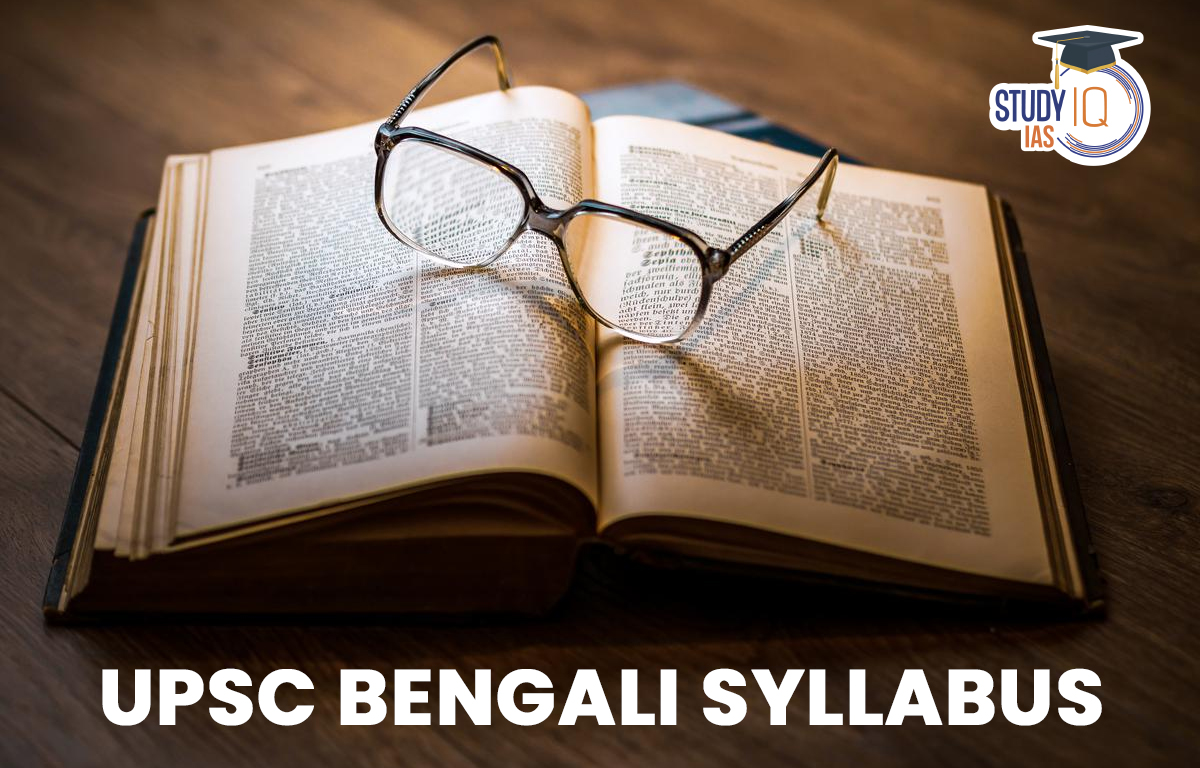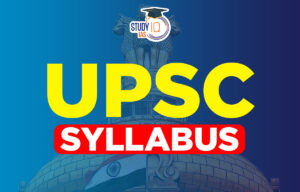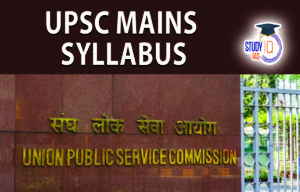Table of Contents
The UPSC Civil Services Exam consists of three stages: Prelims, Mains, and Interview. For the Mains exam, candidates must select one optional subject, which plays a significant role in their overall ranking. Literature subjects, including Bengali Literature, have gained popularity among aspirants due to their structured and predictable nature.
UPSC Bengali Syllabus
Bengali Literature is one of the optional subjects offered by the UPSC for the Mains exam. Candidates proficient in Bengali, either through academic study or as their mother tongue, might consider opting for this subject. The exam consists of two papers, each carrying 250 marks, making a total of 500 marks.
| UPSC Bengali Literature Syllabus 2024 Overview | |
| Name of Conducting Body | Union Public Service Commission (UPSC) |
| Mode Of Exam | paper pen (offline mode) based examination |
| Name of Exam | Bengali Literature |
| Bengali Literature Optional Subject | Paper I & II |
| Total Marks | 250 Marks for Each (Paper I & II) |
| Total Time | 3 Hours Each |
| Language of Question Paper | English and Hindi only |
| Official Website | upsc.gov.in |
UPSC Bengali Literature Syllabus 2024
The UPSC Bengali Literature syllabus is specialized and best suited for candidates with a strong background in Bengali. Due to less competition and a stable syllabus, candidates can excel by providing well-informed answers. To prepare effectively, thoroughly review the syllabus and recommended texts, create a structured study plan, and practice writing answers in Bengali. Regularly solve past papers and take mock tests to understand the exam pattern. Seek feedback from mentors to refine your answers. With dedicated preparation and strategic study, candidates can leverage their knowledge to perform well in the Bengali Literature optional paper.
Bengali Optional for UPSC Mains Syllabus
In UPSC Mains, the UPSC Bengali Optional Syllabus is divided into two papers, Paper 1 and Paper 2. Papers 1 and 2 each carry 250 marks, for a total of 500 marks. You must first qualify for the UPSC Prelims before proceeding to the Mains Examination.
UPSC Bengali Syllabus Paper 1 PDF
UPSC Bengali Syllabus Paper 1 includes two major topics History of the Bangla Language and the History of the Bangle Language. The detailed syllabus is given in the below PDF:
| UPSC Bengali Literature Syllabus 2024 for Mains Optional Paper I | |
|
History of Language and Literature
|
Chronological track from Proto-Indo-European to Bangla |
|
Historical stages of Bangla and their linguistic features (Old, Middle, New)
|
|
| Dialects of Bangla and its distinguishing characteristics | |
| Elements of Bangla Vocabulary | |
| Forms of Bangla Literary Prose—Sadhu and Chalit | |
|
Processes of language change relevant for Bangla- Apinihiti (Anaptyxis), Abhishruti (umlaut), Murdhanyibhavan (centralization), Nasikyibhavan (Nasalization), Samibhavan (Assimilation), Sadrishya (Analogy), Svaragama (Vowel insertion) —Adi Svaragama, Madhya Svaragama or Svarabhakti, Antya Svaragama, Svarasangati (Vowel harmony), y—shruti and w—shruti
|
|
|
Problems of standardization and reform of alphabet and spelling and those of transliteration and Romanization
|
|
| Phonology, Morphology, and Syntax of Modern Bangla | |
|
History of Bangla Literature
|
Periodization of Bangla Literature: Old Bangla and Middle Bangla |
|
Points of difference between modern and pre-modern Bangla Literature
|
|
|
Roots and reasons behind the emergence of modernity in Bangla Literature
|
|
|
Evolution of various Middle Bangla forms; Mangal Kavyas, Vaishnava lyrics, Adapted narratives (Ramayana, Mahabharata, Bhagavata), and religious biographies
|
|
| Secular forms in middle Bangla literature | |
| Narrative and lyric trends in Nineteenth-century Bangla Poetry | |
| Development of prose | |
| Bangla dramatic literature (19th century, Tagore, Bangla drama) | |
| Tagore and post-Tagoreans | |
|
Fiction authors: Bankimchandra, Tagore, Saratchandra, Bibhutibhusan, Tarasankar, Manik
|
|
| Women and Bangla literature: creators and created | |
UPSC Bengali Syllabus Paper 2 PDF
UPSC Bengali Syalbys Paper 2 includes Vaishnava Padavali Chandimangal Kalketu episode by Mukunda, and Kapalkundala by Bankimchandra Chatterjee. Raktakarabi by Rabindranath Tagore. Grihadaha by Saratchandra Chatterjee. Sonar Tari by Rabindranath Tagore. The detailed syllabus is given in the below PDF:
| UPSC Bengali Literature Syllabus 2024 for Mains Optional Paper II | |
|
Part A
|
Vaishnava Padavali- Poems of Vidyapati, Chandidas, Jnanadas, Govindadas and Balaramdas
|
| Chandimangal Kalketu episode- Mukunda (Sahitya Akademi) | |
|
Chaitanya Charitamrita Madhya Lila- Krishnadas Kaviraj (Sahitya Akademi)
|
|
| Meghnadbadh Kavya- Madhusudan Dutta | |
| Kapalkundala- Bankimchandra Chatterjee | |
| Samya and Bangadesher Krishak- Bankimchandra Chatterjee | |
| Sonar Tari- Rabindranath Tagore | |
| Chhinnapatravali- Rabindranath Tagore | |
|
Part B
|
Raktakarabi- Rabindranath Tagore |
| Nabajatak- Rabindranath Tagore | |
| Grihadaha- Saratchandra Chatterjee | |
| Prabandha Samgraha, Vol. 1- Pramatha Choudhuri | |
| Aranyak- Bibhutibhusan Banerjee | |
|
Short stories- Manik Bandyopadhyay: Atashi Mami, Pragaitihasik, Holud-Pora, Sarisrip, Haraner Natjamai, Chhoto-Bokulpurer Jatri, Kustharogir Bou, Jakey Ghush Ditey Hoy
|
|
| Shrestha Kavita- Jibanananda Das | |
| Jagori- Satinath Bhaduri | |
| Ebam Indrajit- Badal Sircar | |
UPSC Bengali Literature Exam Pattern 2024
The UPSC mains exam comprises several papers, which includes the UPSC Bengali Literature Optional paper as well. Below is the exam pattern for the mains:-
| UPSC Bengali Literature Exam Pattern 2024 | ||
| Mains Papers | Subject | Marks |
| Paper VI | Optional Subject Paper-I | 250 |
| Paper VII | Optional Subject Paper-II | 250 |
| Total | 500 | |
| Time duration |
3 hours (180 minutes)
|
|
How to prepare for UPSC Bengali Literature Exam
To prepare effectively for the UPSC Bengali Literature exam, follow these steps:
- Understand the Syllabus: Thoroughly review the detailed syllabus for both Paper-I and Paper-II. Familiarize yourself with key topics and texts.
- Select Reference Books: Use recommended textbooks and reference materials specific to the Bengali Literature syllabus. Focus on works by prominent authors.
- Create a Study Plan: Develop a structured study plan that covers all syllabus areas, allocating specific time for each topic.
- Practice Writing: Regularly write answers in Bengali to improve clarity, depth, and adherence to the syllabus.
- Solve Previous Papers: Review and solve past question papers to understand the exam pattern and question types.
- Take Mock Tests: Simulate exam conditions with mock tests to gauge your preparation and identify areas for improvement.
- Seek Feedback: Get feedback from mentors or peers to refine your writing and analytical skills.
- Stay Updated: Keep track of any minor changes in the syllabus or exam pattern.


 NCERT Books for UPSC Preparation, Check ...
NCERT Books for UPSC Preparation, Check ...
 UPSC Syllabus 2025, Check UPSC CSE Sylla...
UPSC Syllabus 2025, Check UPSC CSE Sylla...
 UPSC Mains Syllabus 2025, Optional Sylla...
UPSC Mains Syllabus 2025, Optional Sylla...





















